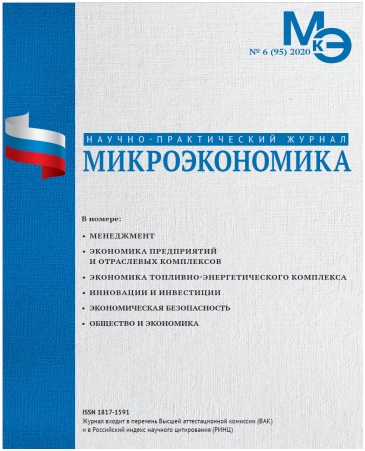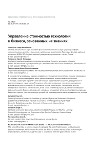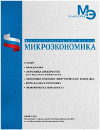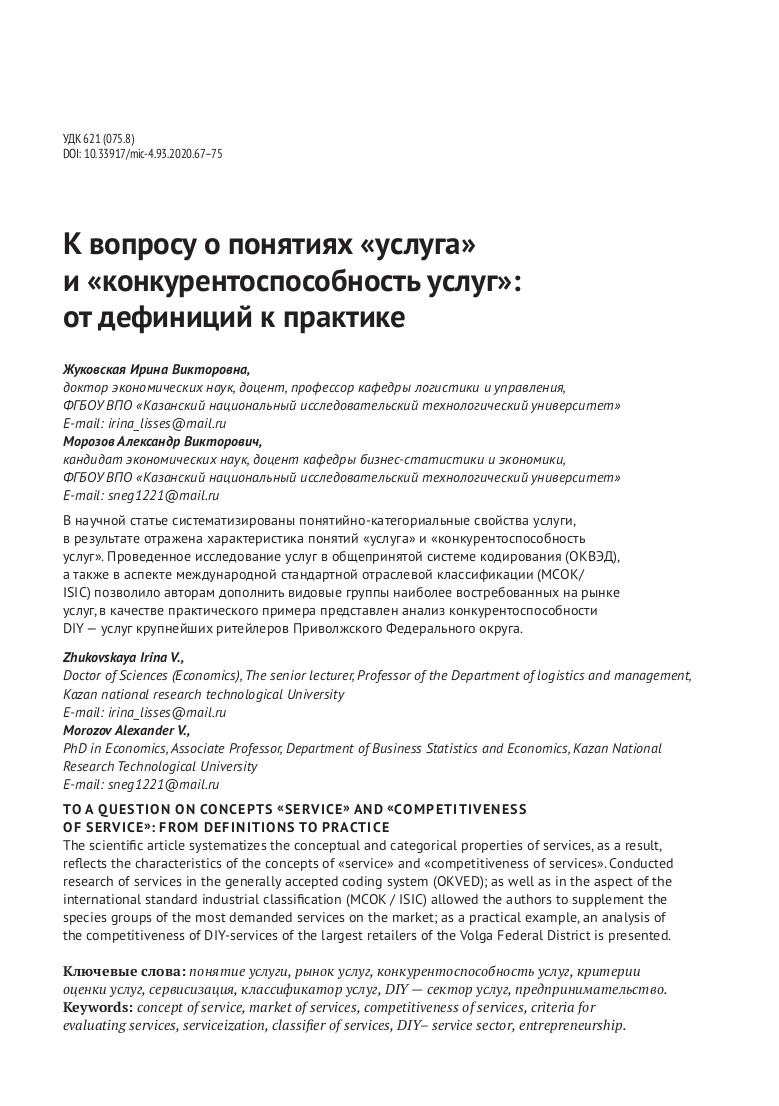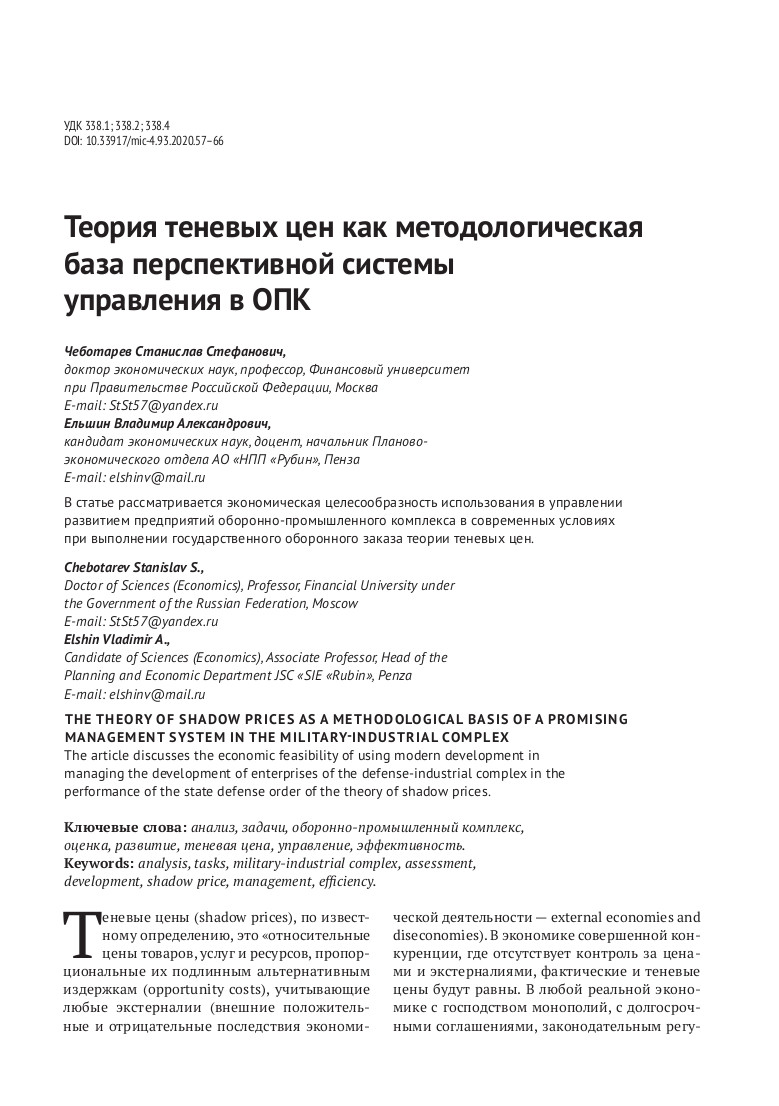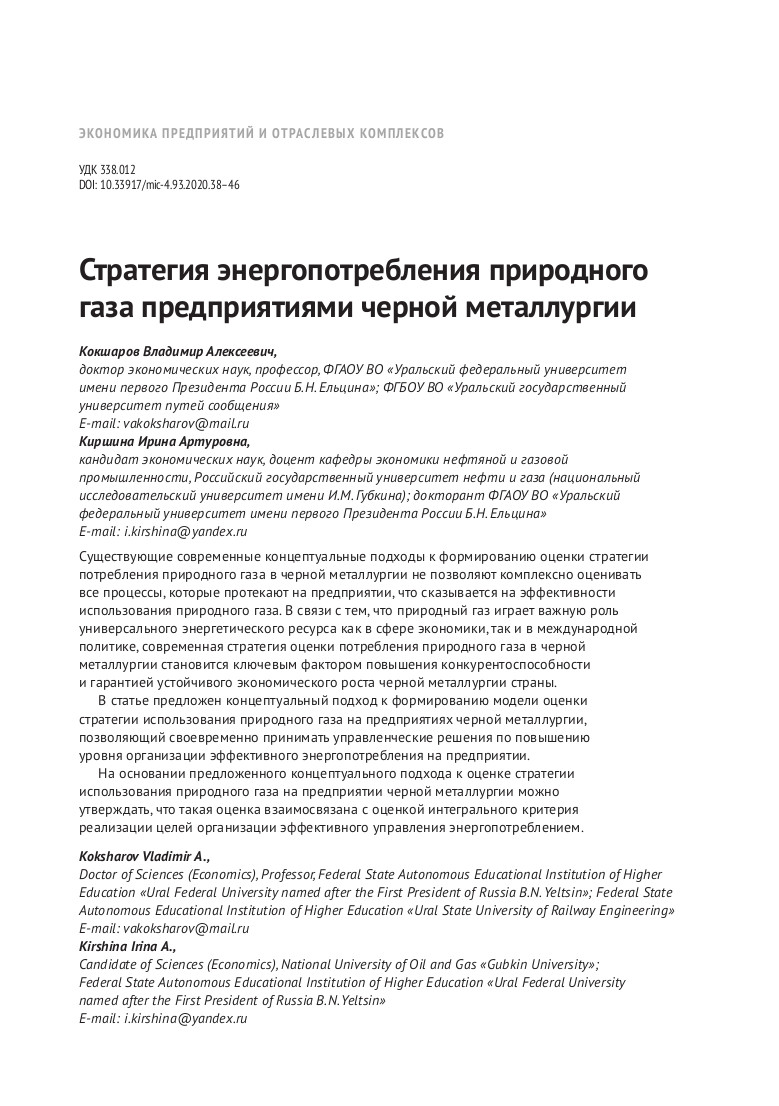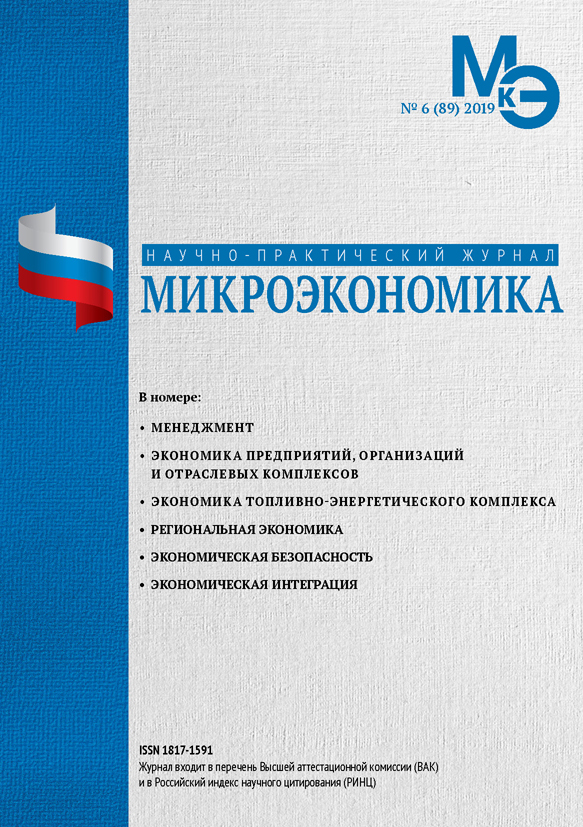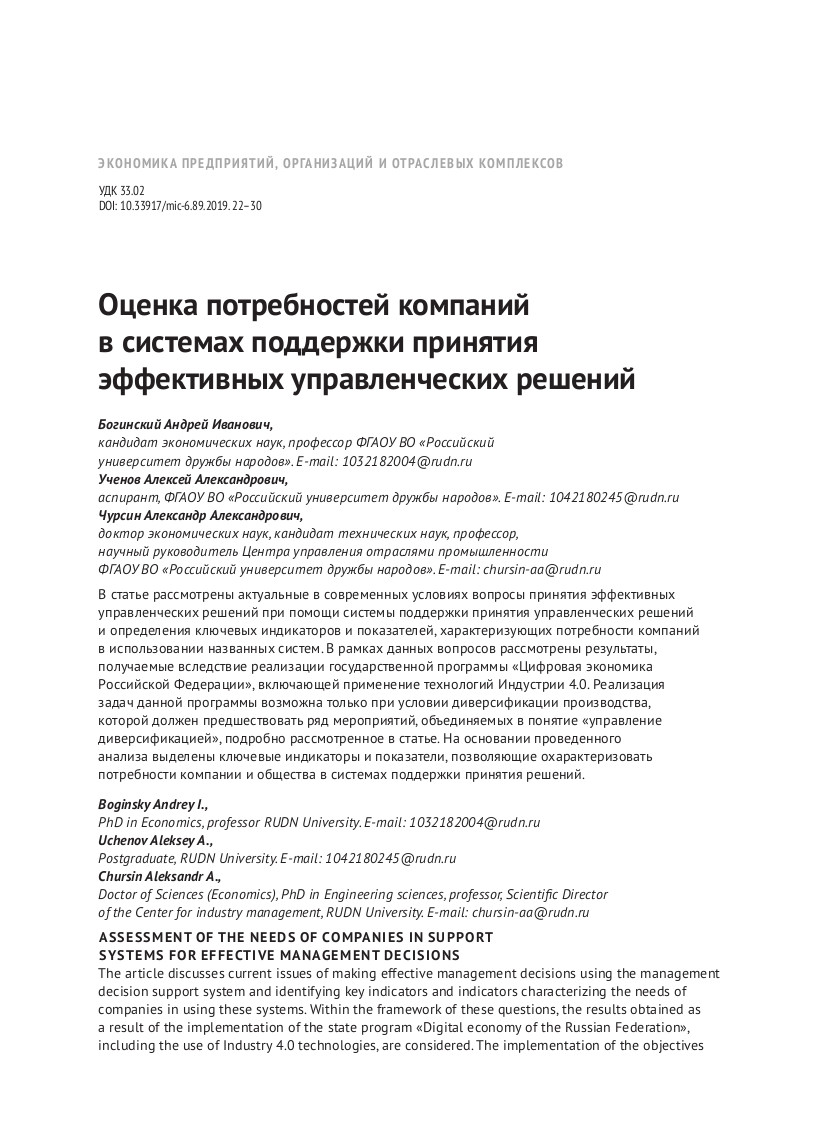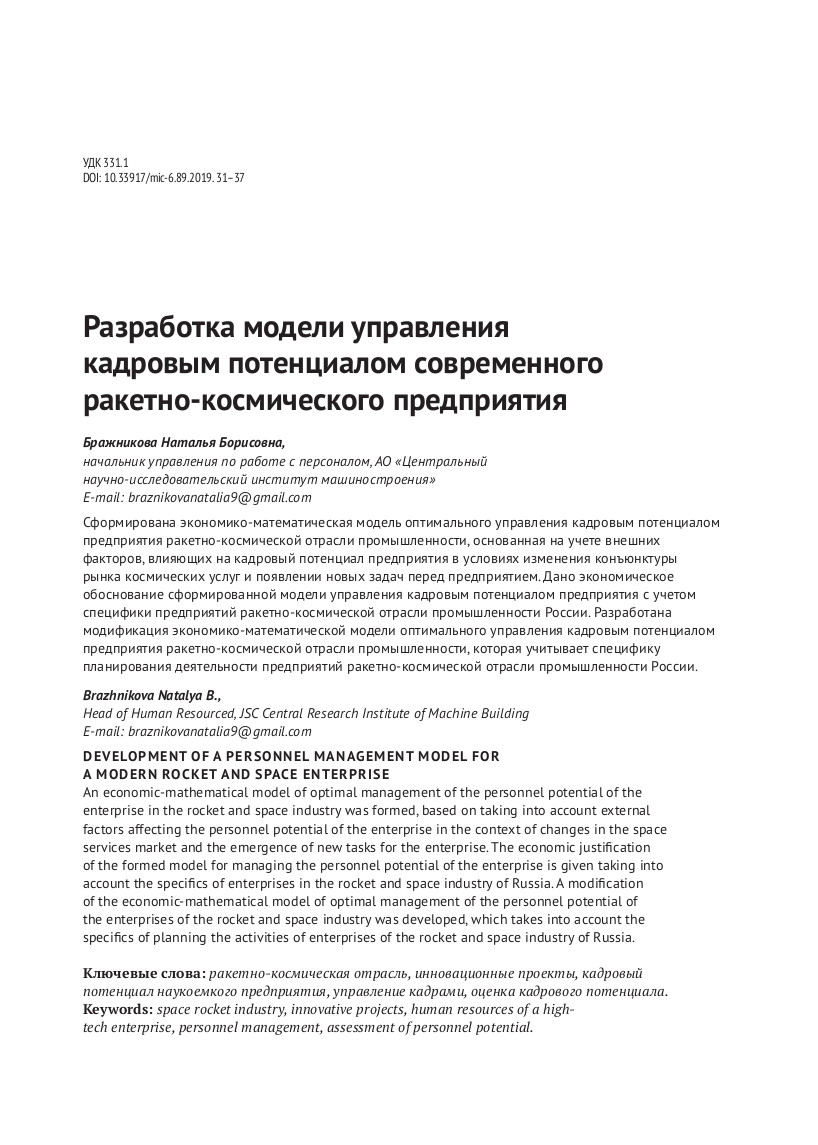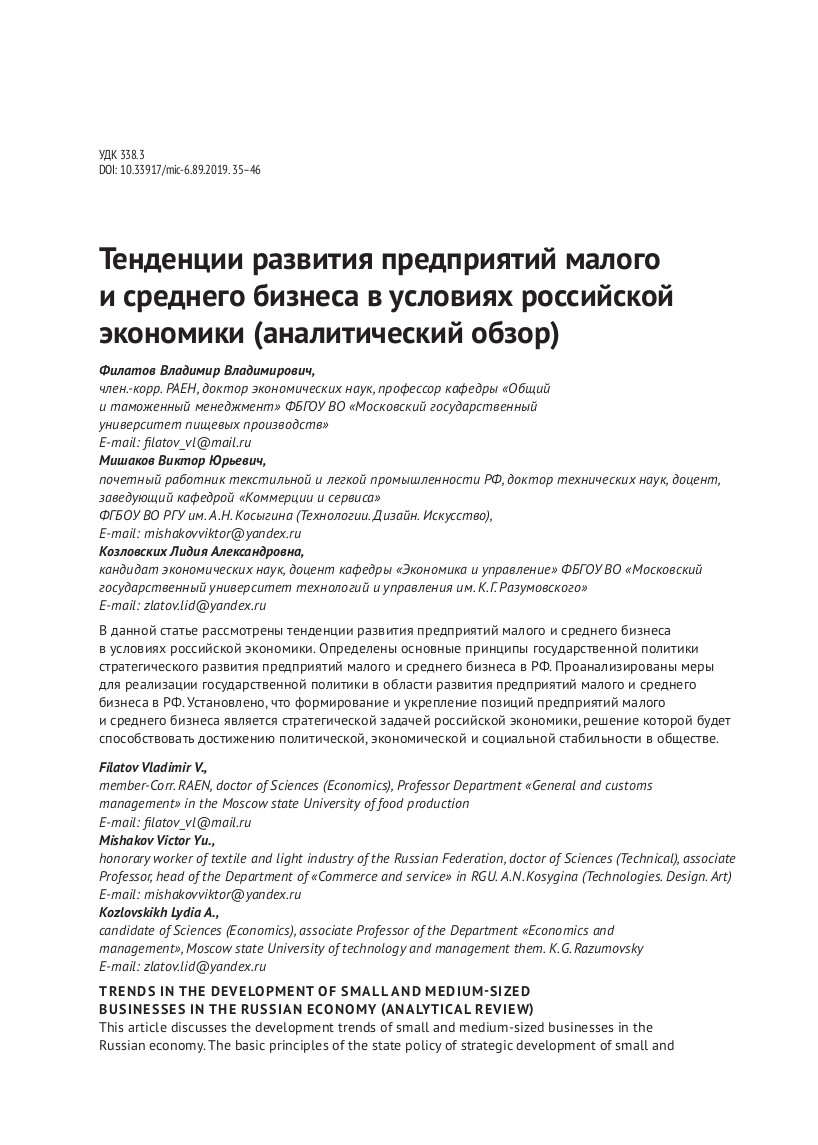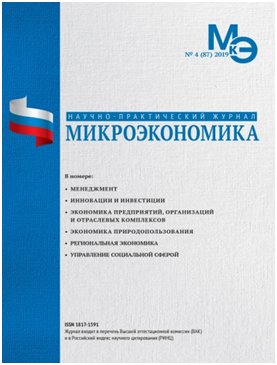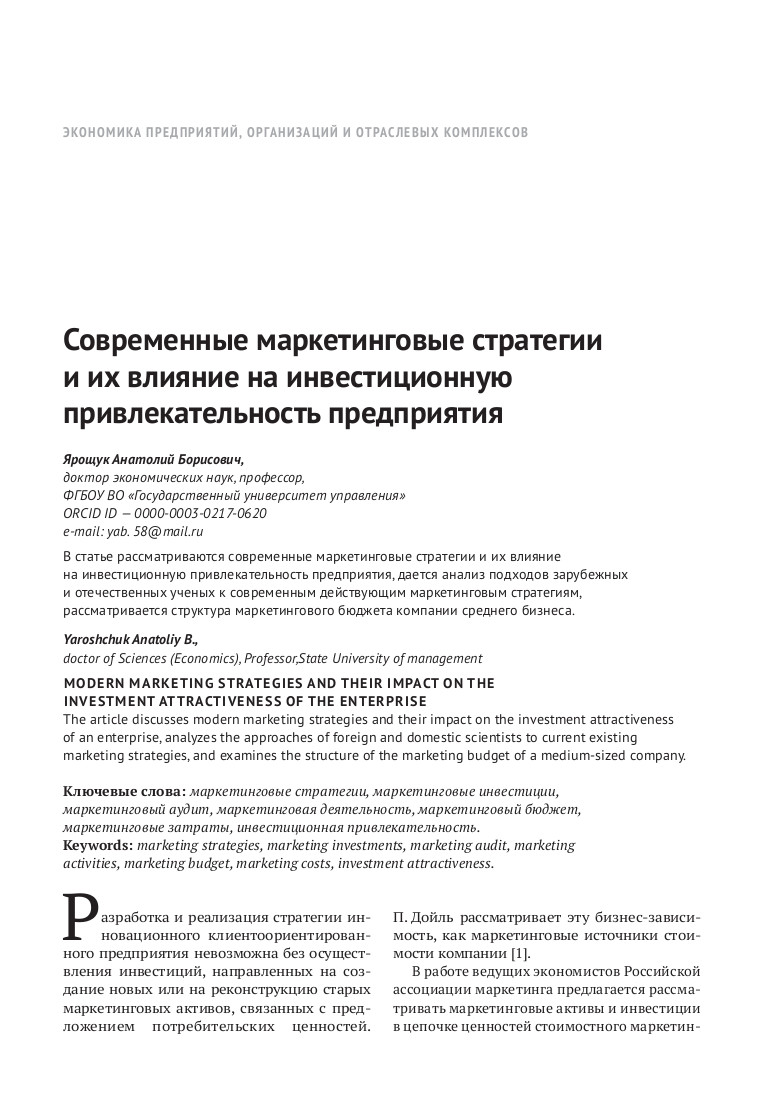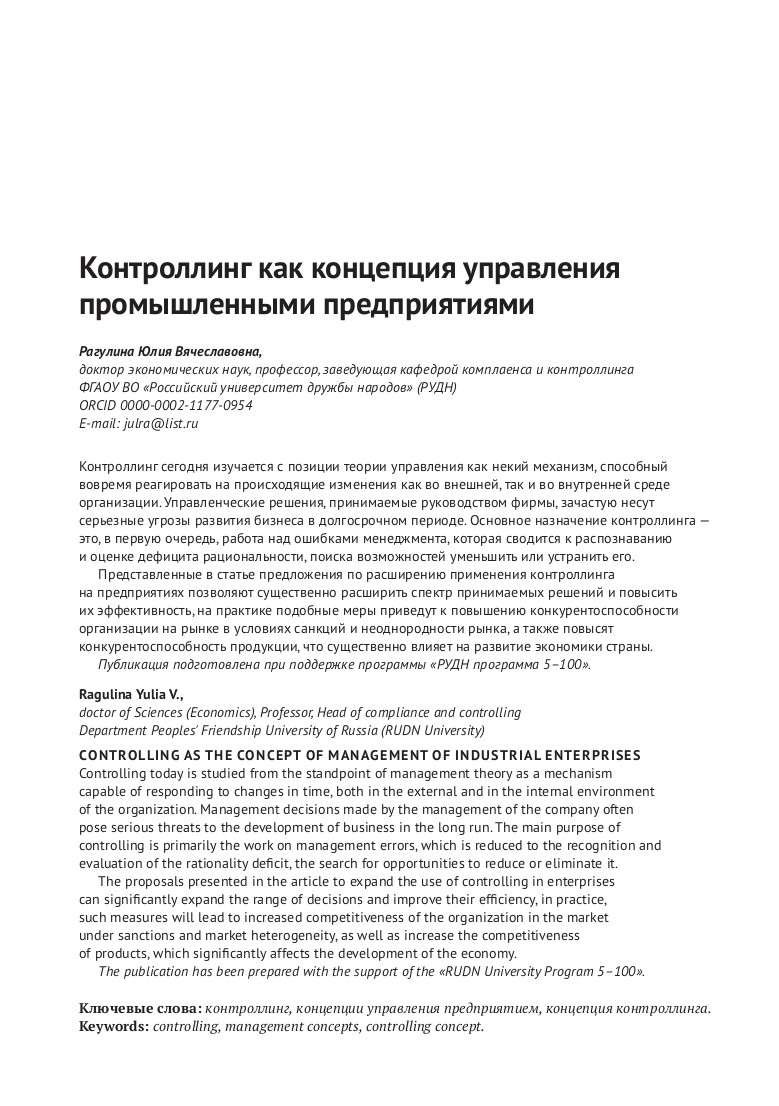Managing the cost of knowledge-based technologies and businesses
DOI: 10.33917/mic-6.95.2020.21-29
This scientific article covers the issues of managing the cost of technologies and businesses based on knowledge, which means first of all the ability to assess the cost of such technologies and businesses, and then manage this cost in accordance with the goals defined by the relevant structures. Technologies and businesses based on knowledge belong to the objects of intellectual property.
The authors analyze modern methods of determining the value of property, including intellectual property; identify the peculiarities of assessing the value of a business based on knowledge; determine the features of managing this business; study and systematize the Russian experience of doing business based on knowledge.


